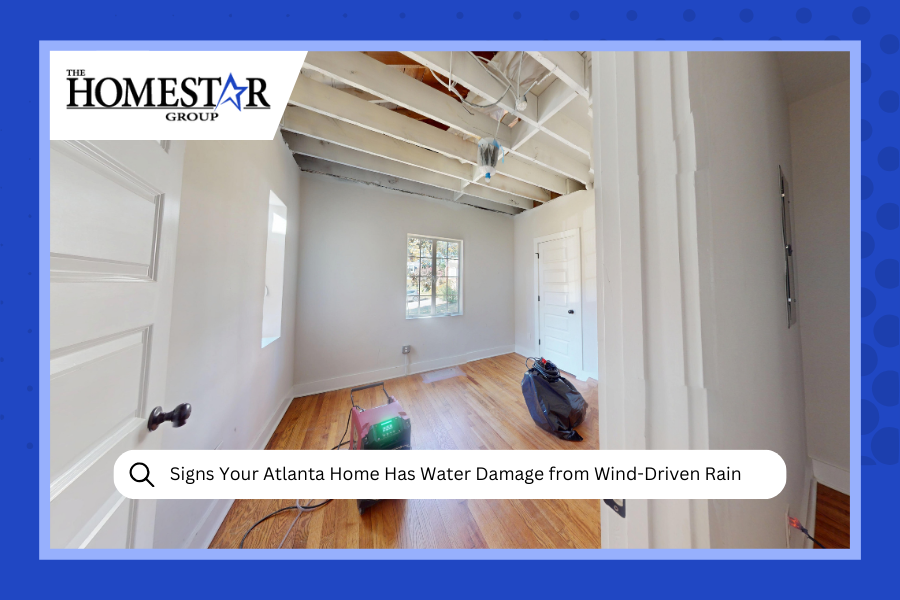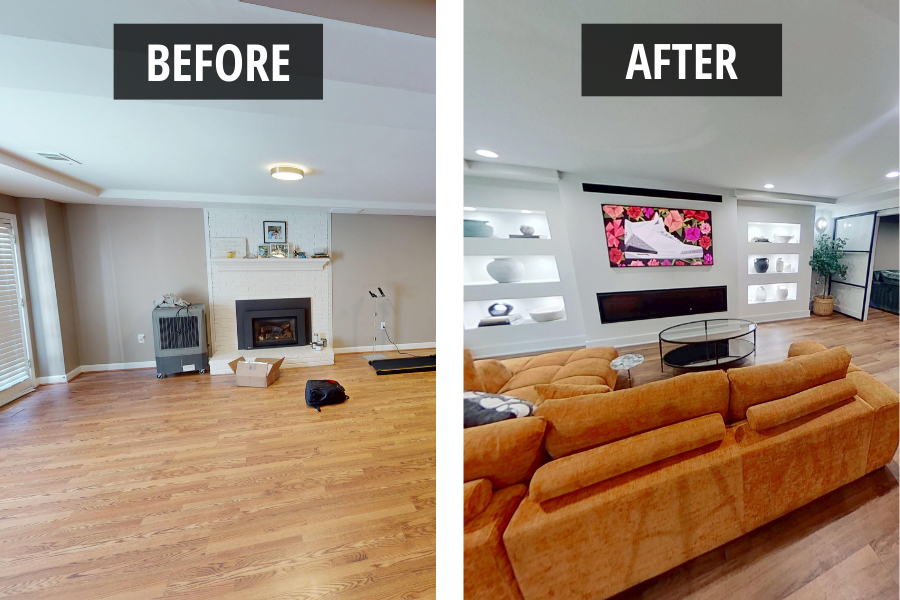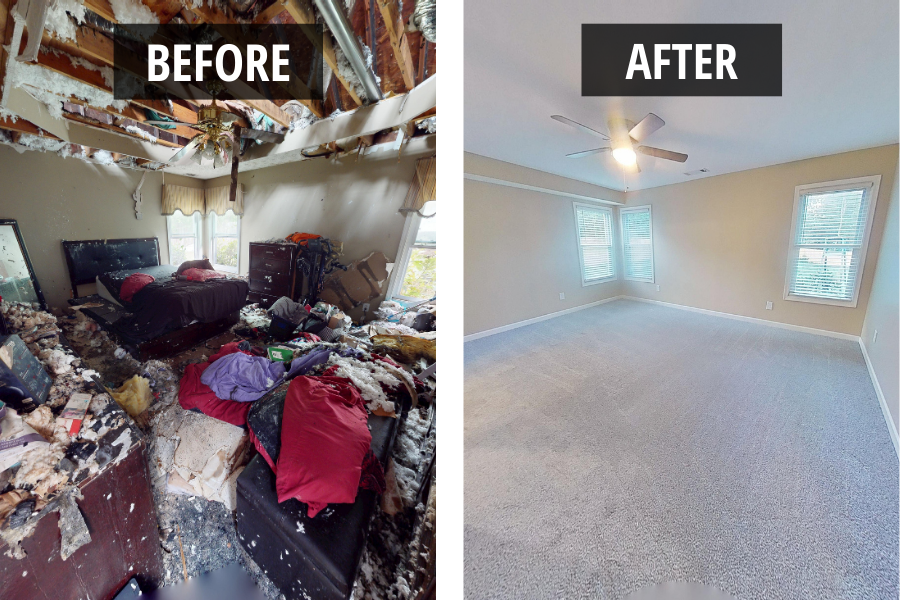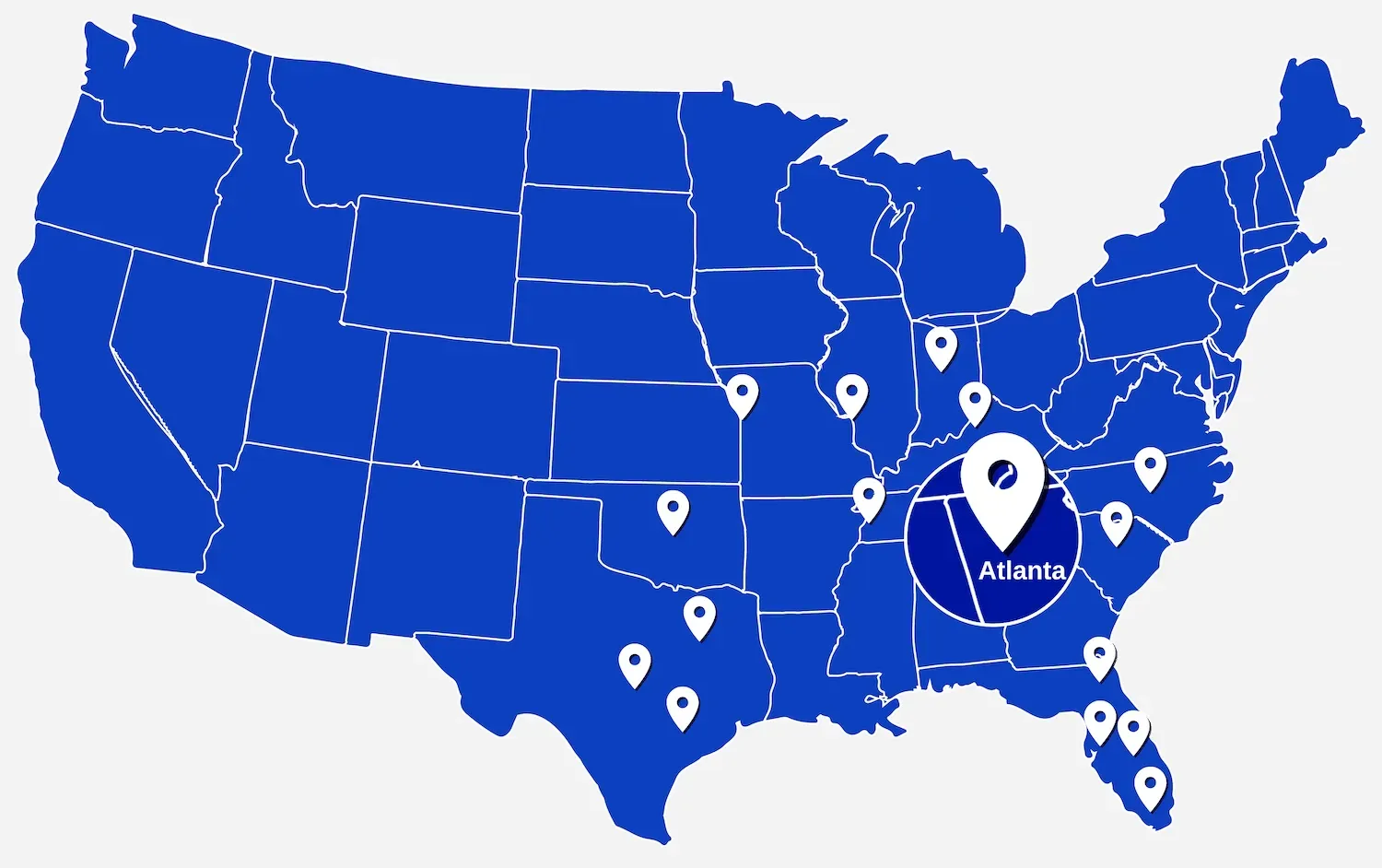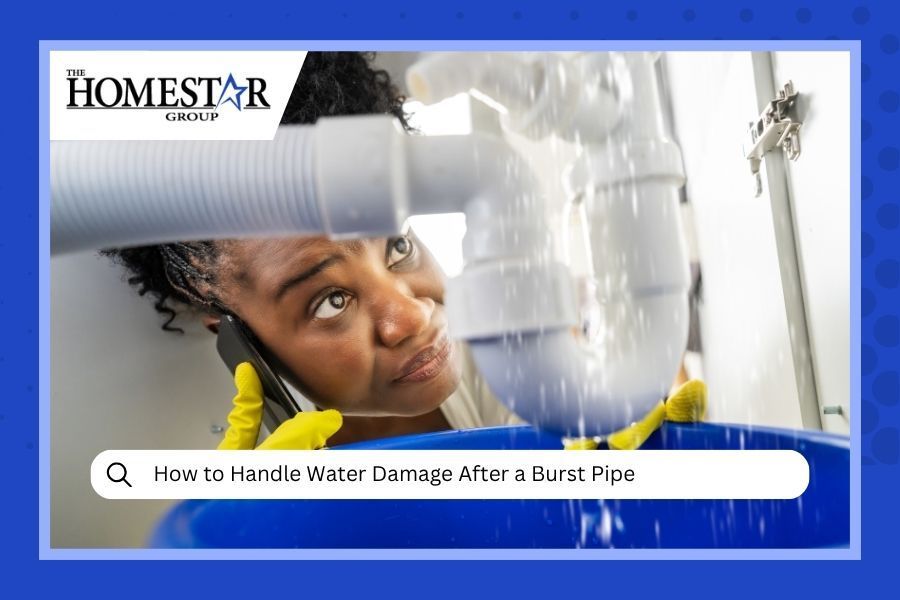
How to Handle Water Damage After a Burst Pipe (7 Critical Steps)
Nobody wakes up expecting their pipes to throw a tantrum and flood their home. But here in Atlanta, with our unpredictable weather patterns and aging infrastructure, burst pipes happen more often than we'd like to admit. When it does happen, those first few minutes can make the difference between a manageable cleanup and a full-scale restoration project.
We've been helping Atlanta homeowners deal with water damage restoration situations for over 15 years, and trust us, we've seen it all. From basement floods in Stone Mountain to kitchen disasters in Marietta, burst pipes don't discriminate. The good news? With the right approach, you can minimize the damage and get your life back to normal faster than you might think.
Understanding Why Pipes Burst in Atlanta
Before we dive into the action steps, let's talk about why this happens. Unlike our northern neighbors who deal with frozen pipes, we face different challenges here in the Atlanta metro area. Heavy rains can shift foundations, older homes in areas like East Atlanta might have aging plumbing, and sometimes pipes just decide they've had enough.
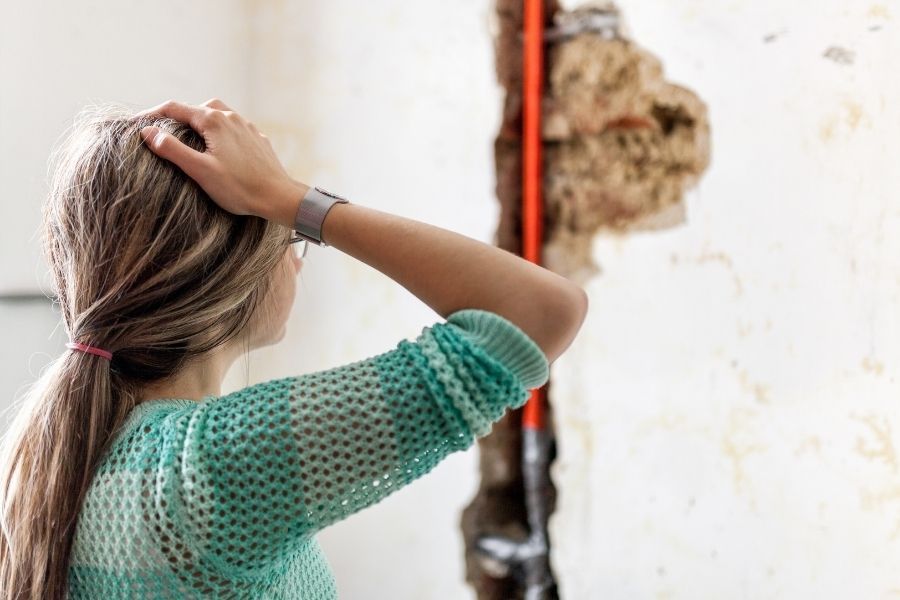
The most common culprits we see are:
- Sudden pressure changes from city water systems
- Corrosion in older pipes (especially in homes built before 1980)
- Ground shifting from our famous Georgia clay
- Tree root intrusion (those beautiful old oaks come with a price)
The 7 Critical Steps: Your Burst Pipe Action Plan
Step 1: Stop the Water Flow Immediately
This might seem obvious, but you'd be surprised how many people panic and forget this crucial first step. Here's what you need to do:
Find your main water shutoff valve. It's usually located near where the water line enters your home, often in the basement, crawl space, or near the water heater. In many Atlanta-area homes, it's outside near the street.
Turn it clockwise to shut off. If you can't budge it, don't force it. Use a wrench or call for help. A broken shutoff valve will make your day infinitely worse.
Pro tip: Know where this valve is BEFORE you need it. Take a few minutes this weekend to locate it and make sure everyone in your household knows where it is too.
Step 2: Turn Off Electricity to Affected Areas
Water and electricity are not friends, and their disagreements can be deadly. If water is anywhere near electrical outlets, fixtures, or your electrical panel, shut off the electricity to those areas at the breaker box.
Safety first: If you have to walk through standing water to reach the electrical panel, don't do it. Call a professional instead. Your safety is worth more than preventing additional water damage.
Need immediate help with water damage in Atlanta?
Our emergency response team is available 24/7. We can be at your Conyers, Decatur, or Marietta home within hours.
Contact Us NowStep 3: Document Everything for Insurance
We get it. When your kitchen is flooding, the last thing you want to do is play photographer. But documentation is crucial for insurance claims, and good documentation can save you thousands of dollars.
Take photos and videos of:
- The burst pipe and surrounding damage
- All affected rooms and belongings
- Water levels (use a ruler or measuring stick if possible)
- Serial numbers on damaged appliances
Create a written inventory of damaged items, including approximate ages and values. Your future self will thank you when dealing with insurance adjusters. The Insurance Information Institute provides helpful templates for documenting your belongings.
Step 4: Remove Standing Water Quickly
Time is not on your side here. Standing water can cause structural damage, promote mold growth, and ruin belongings. In Atlanta's humid climate, you have even less time before mold becomes a concern.
For small amounts of water:
- Use mops, towels, and buckets
- A wet/dry shop vacuum works wonders
- Don't forget to empty the vacuum frequently
For larger floods:
- Rent or buy a water pump
- Consider calling professionals (hint: that's where we come in)
- Focus on getting water away from the foundation
Important: Don't use regular household vacuums on standing water. You'll damage the vacuum and potentially create an electrical hazard.
Step 5: Start the Drying Process Immediately
Once the standing water is gone, the real race begins. You need to dry everything as quickly as possible to prevent mold growth and structural damage.
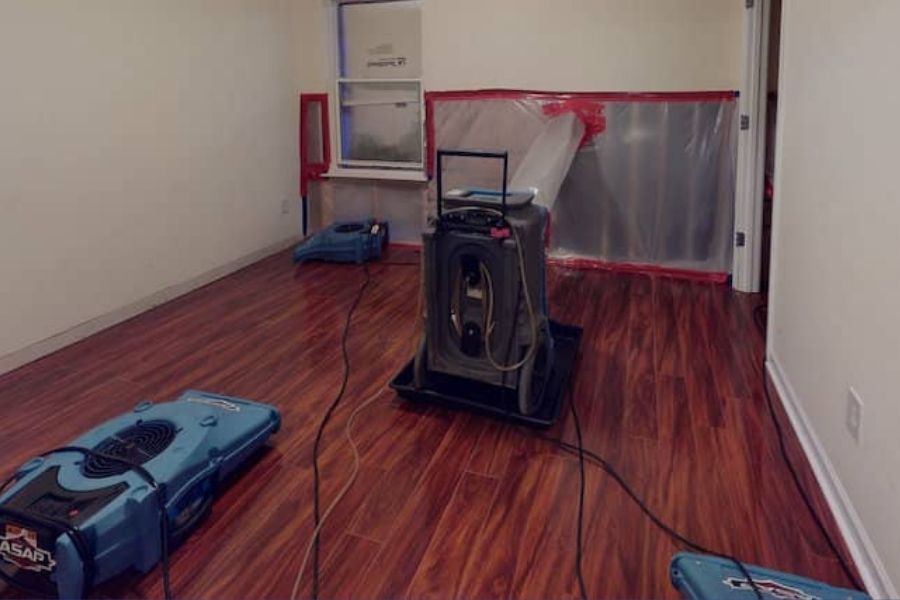
Open windows and doors if the weather permits. Atlanta's humidity can work against you, but air circulation is crucial.
Use fans strategically. Place them to create airflow across wet surfaces. Point them toward open windows if possible to push moist air outside.
Run dehumidifiers if you have them. If you don't, consider renting industrial-grade units. In our experience, regular household dehumidifiers aren't powerful enough for serious water damage.
Remove wet materials that can't be saved:
- Carpeting and padding
- Drywall that's been soaked
- Insulation
- Furniture that's been sitting in water
Step 6: Clean and Disinfect Affected Areas
Once everything is dry (and we mean completely dry), it's time to clean and disinfect. This step is crucial for preventing mold and bacteria growth, especially in our humid Atlanta climate.
Use appropriate cleaning solutions:
- A mixture of water and bleach (1:10 ratio) for hard surfaces
- Commercial antimicrobial solutions for porous materials
- Never mix different cleaning chemicals
Don't forget hidden areas like inside walls and under flooring. Water has a sneaky way of getting into places you can't see, and that's where mold loves to grow.
Step 7: Monitor for Secondary Issues
Your work isn't done once everything looks clean and dry. Water damage can have lingering effects that show up days or even weeks later.
Watch for signs of mold:
- Musty odors
- Discoloration on walls or ceilings
- Respiratory issues in family members
According to the EPA's guidelines on mold cleanup , any mold growth larger than 10 square feet should be handled by professionals.
Check for structural damage:
- Warped flooring
- Cracked walls
- Doors or windows that don't close properly
Monitor humidity levels in your home. They should return to normal (30-50%) within a few days of proper drying.
When to Call the Professionals
Look, we're all for DIY solutions, but some situations require professional help. Here in Atlanta, we've seen too many homeowners try to handle major water damage themselves, only to discover mold problems months later or structural issues that could have been prevented.
Call professionals if:
- You have more than a few inches of standing water
- The water has been sitting for more than 24 hours
- Your home's electrical system was affected
- You suspect contaminated water (sewage backup, etc.)
- You're dealing with water damage in hard-to-reach areas
At The Homestar Group, we've been helping Atlanta-area homeowners recover from water damage for over 15 years. Our IIRC-certified team knows exactly how to handle Atlanta's unique challenges, from our clay soil issues to our humid climate conditions.
What Makes Atlanta Water Damage Different
Every region has its quirks, and Atlanta is no exception. Here are some factors that make water damage restoration in our area unique:
Humidity challenges: Our humid climate means drying takes longer and mold risk is higher. Professional-grade dehumidification is often necessary.
Clay soil movement: Georgia clay expands and contracts with moisture, which can affect foundations and plumbing over time.
Basement considerations: Unlike many southern cities, many Atlanta homes have basements, which present unique drying and waterproofing challenges.
Age of housing stock: Many homes in areas like East Atlanta and Decatur are older, with plumbing systems that may be more vulnerable to failure.
Prevention: Your Best Defense
While we're always here to help when disaster strikes, prevention is obviously the better path. Here are some proactive steps Atlanta homeowners can take:
Regular plumbing inspections can catch problems before they become disasters. Look for signs of corrosion, mineral buildup, or unusual water pressure.
Know your home's history. If you live in an older Atlanta neighborhood, understand the age and condition of your plumbing system.
Maintain proper drainage around your home's foundation. With our heavy rains and clay soil, proper grading is crucial.
Consider upgrading old pipes if your home was built before 1980. The upfront cost is much less than dealing with repeated water damage incidents.
The Bottom Line
Dealing with a burst pipe and water damage is never fun, but with quick action and the right approach, you can minimize the damage and get your life back on track. Remember, the key is acting fast – every minute counts when it comes to water damage.
If you're dealing with water damage in Atlanta, Marietta, Conyers, Decatur, Stone Mountain, or anywhere in the metro area, don't hesitate to reach out. We're available 24/7 because water damage doesn't wait for business hours. And if the damage has led to mold concerns, our mold removal services can address those issues safely and thoroughly.
For more helpful tips on protecting your home, check out our posts on water damage prevention strategies and understanding water damage assessment. And if you're dealing with fire damage alongside water issues, our fire damage restoration services can help with comprehensive recovery.
Frequently Asked Questions
What should I do if I can't find my main water shutoff valve during a burst pipe emergency?
If you can't locate your main shutoff valve, call your water utility company immediately - they can shut off water at the street. In Atlanta, most homes have the valve near the water meter by the curb or where the main line enters your home. As a temporary measure, you can also shut off water to the specific fixture if it's a localized burst (like under a sink), but you'll still need to find that main valve for complete protection.
How do I know if the water from my burst pipe is contaminated?
Clean water from supply lines (like those feeding sinks, toilets, or appliances) is generally safe to clean up yourself. However, if the burst involved sewage lines, water heater drainage, or if the water has been sitting and picked up debris, treat it as contaminated. Signs include unusual odor, discoloration, or visible debris. When in doubt, call professionals - we deal with contaminated water cleanup regularly in the Atlanta area.
Should I remove wet drywall myself after a burst pipe, or wait for professionals?
You can safely remove wet drywall if the water was clean and you're comfortable with basic home repairs. Cut drywall about 12 inches above the water line to ensure you get all the wet material. However, if the water was contaminated, if there's electrical wiring in the walls, or if you suspect mold growth, leave it to professionals. Our team handles drywall removal and replacement as part of our restoration process.
My burst pipe happened at night - should I start cleanup immediately or wait until morning?
Start immediately, even at night. Turn off the water and electricity first, then begin removing standing water if it's safe to do so. Water damage gets exponentially worse with each passing hour, especially in Atlanta's humid climate. Document what you can with your phone's flashlight, but don't wait for daylight to start the basic steps. You can always call our 24/7 emergency line if you need guidance or immediate professional help.
The Homestar Group has been Atlanta's trusted water damage restoration partner for over 15 years. Our IIRC-certified team provides 24/7 emergency response throughout the Atlanta metro area, including Conyers, Marietta, Decatur, and Stone Mountain. Contact us anytime for immediate assistance with water damage, mold remediation, or fire damage restoration.

Jeremy York is the owner of The Homestar Group, bringing over 15 years of experience in the water and fire damage restoration industry to homeowners and businesses throughout the Atlanta metro area. Under his leadership, The Homestar Group has built a reputation for reliable 24/7 emergency response and professional restoration services backed by IICRC certification. Jeremy is committed to serving the local community and takes pride in helping families and business owners recover from unexpected disasters. His hands-on approach ensures every customer receives the care and attention they deserve during challenging times.

